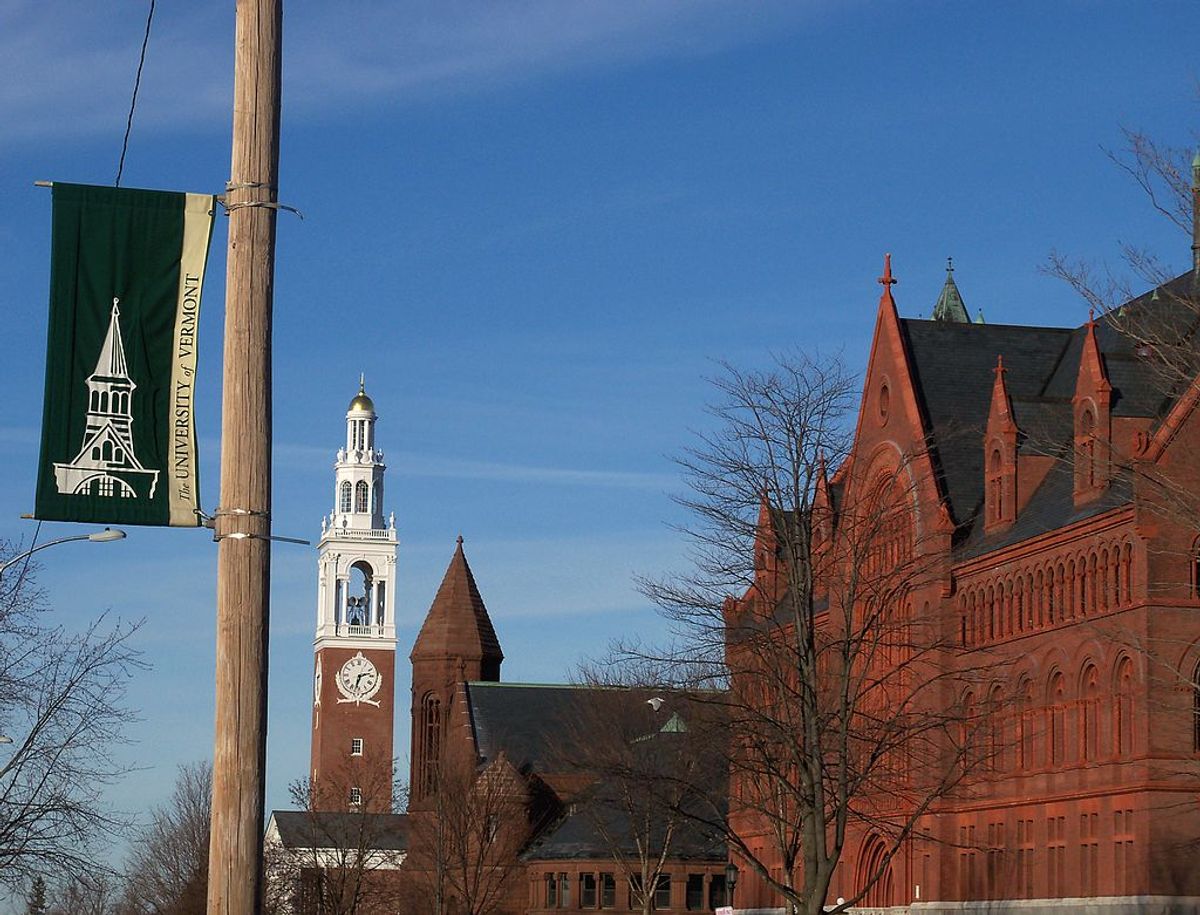After nearly a decade of on-campus lobbying and internal review, the University of Vermont has officially adopted a policy of recognizing a third, neutral gender, in order to make the school a more welcoming safe space for genderqueer students. The move goes beyond allowing students to use chosen names (even if they're not legally changed) on official documents, and also means the university will offer a third pronoun option, in addition to "he/she," in recording systems around campus -- as well as in daily conversation.
According to the New York Times, the university's decision to recognize a third gender followed a long process of determining how best to allow LGBTQ students to define themselves in the classroom without the fear of excessive scrutiny or of being outed, and it's inspiring changes on other campuses as well:
So far, about 100 schools now allow students, and sometimes employees, to indicate a moniker other than their legal first name, according to the Consortium of Higher Education L.G.B.T Resource Professionals, and hundreds more have contacted Vermont on how to implement the pronoun choice.
In September, the university’s pronoun options were expanded yet again to include “they,” as grammarians have reminded naysayers that the English language is constantly evolving. Since 2009, 1,891 University of Vermont students have specified a preferred pronoun, with 14 opting for “ze,” 10 for “they” and another 228 for name only.
As transgender rights remain controversial across the country (and, in certain states, unabashedly under attack), the university's move, and the changes being sparked at other institutions of higher education, indicate a positive change toward creating safe spaces for a community subject to intense, ongoing discrimination. As Robin Ochs, an educator and LGBTQ advocate, explained to the Times, expanding official options for expressing one's gender identity turns college campuses into places where trans and genderqueer students can truly be themselves.
"[There] have always been people who have felt profoundly uncomfortable in their assigned gender roles,” Ochs said. “Anything we can do to make them safer, or make them feel recognized, heard, seen, understood, we should do. To validate their identity and experience could, in fact, save their life.”



Shares